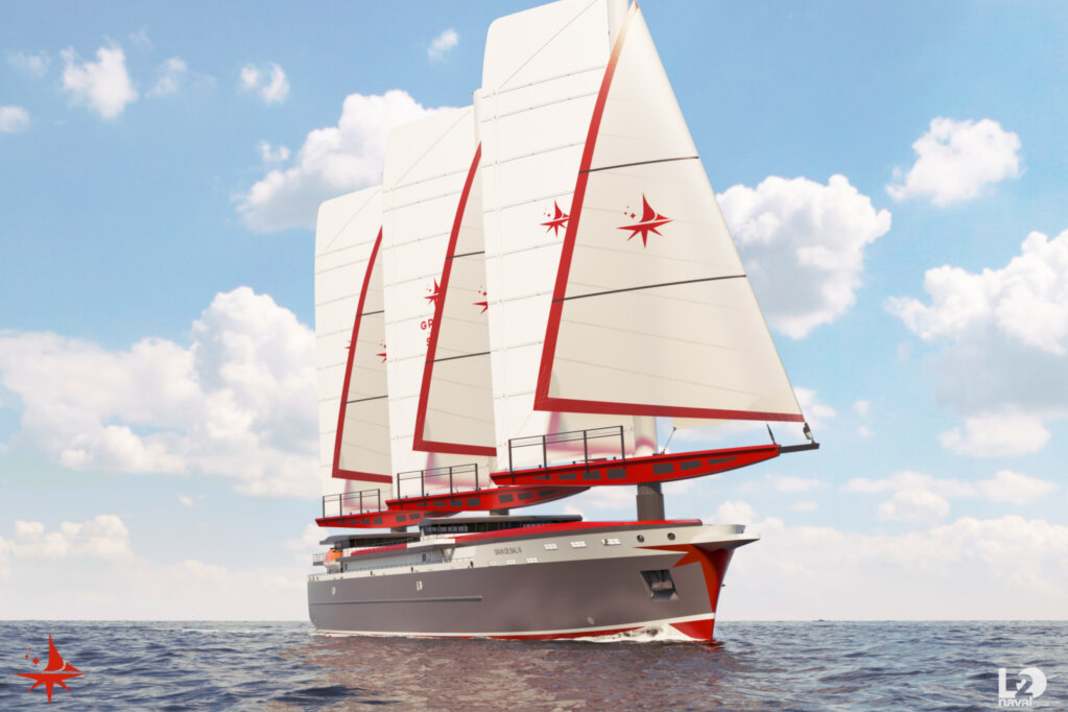




International goods transport is becoming more sustainable and the fleet of cargo ships is growing steadily. The 136 metre long "Neoliner Origin" recently completed the first Atlantic crossing under sail. A transport journey with 80 per cent lower CO2 emissions compared to conventional container ships. The Breton company Grain de Sail, which already operates two smaller sailing freighters and is currently working on its flagship, the 110-metre-long "Grain de Sail III", also believes in this type of low-emission goods transport. The first voyages are due to start in two years.
Sustainable goods transport
The company Grain de Sail was founded in 2010 by twin brothers Jacques and Olivier Barreau with the aim of transporting organic coffee and chocolate across the Atlantic with the lowest possible CO2 emissions. The company opened its first roasting plant in 2013, followed by a chocolate factory in 2016. Four years later, the first sailing cargo ship was put into operation.
"Grain de Sail III" - 200 TEU on board
Following the positive experiences and operational feedback from the first two ships, the team developed the significantly larger and technically more advanced "Grain de Sail III". The ship is equipped with three Panmax masts, has 4,000 square metres of sail area and should be able to cross the Atlantic in around 13 days. Assuming the best wind conditions, of course.
Wood pellets provide energy
In addition to sail propulsion, the ship relies on modern energy management: a combination of strong insulation, hydrogen technology and a wood pellet boiler ensures a self-sufficient and emission-free energy supply on board. This not only guarantees propulsion, but also the comfort of the crew. "Grain de Sail III" is part of a series modern sailing freighter combine climate protection targets with economic efficiency.
Technical data "Grain de Sail III":
Length: 110 m
Sailing area: approx. 4,000 m²
Loading capacity: approx. 3,000 tonnes / 200 TEU
Mast height (Panmax): 62.5 m
Launch: 2027

Martin Hager
Editor in Chief YACHT
